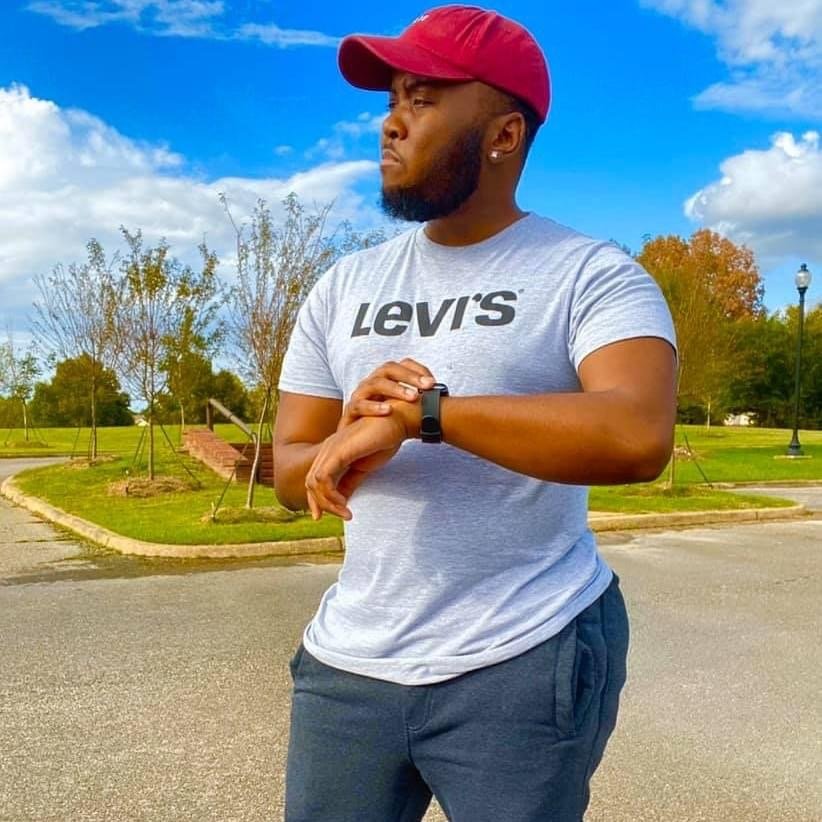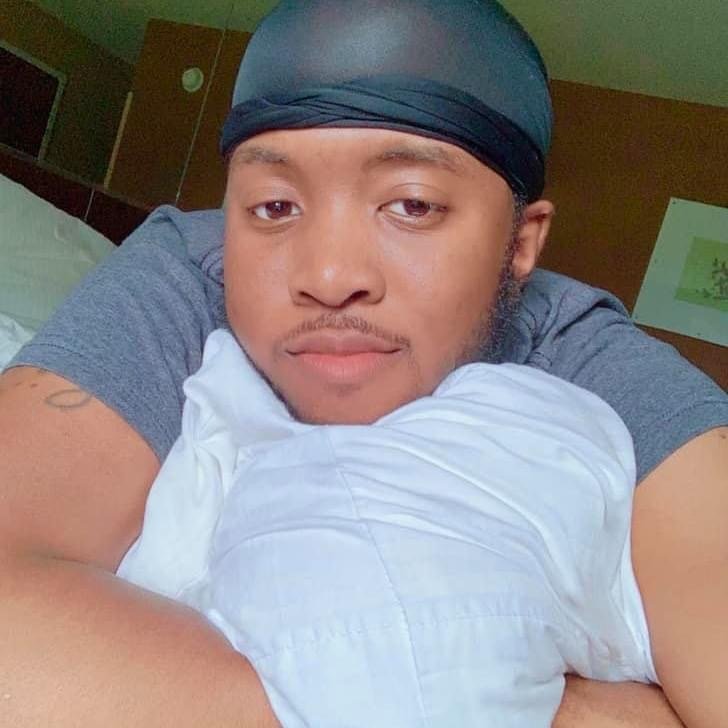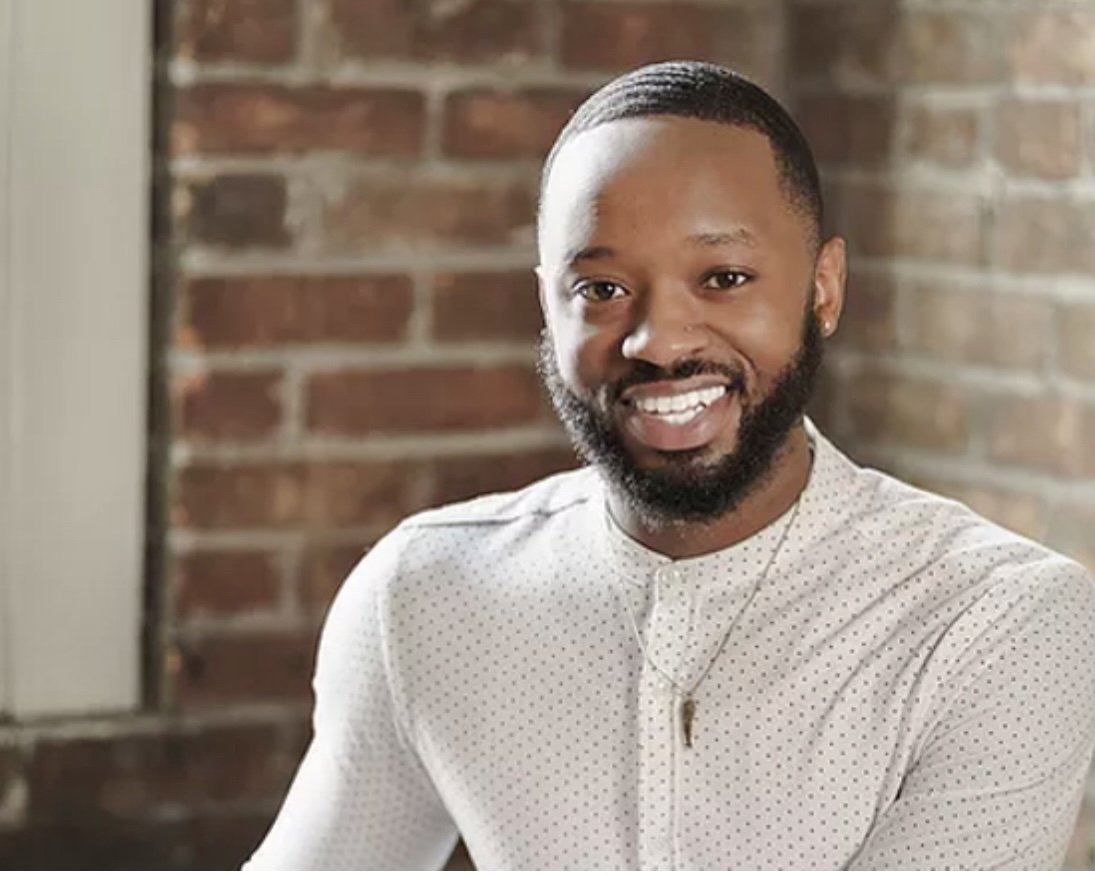Unwrapping: Black Gay Men and the Unwanted Gift of Holiday Depression

For many, Christmas represents the promise of peace and goodwill, but behind the decorations and family traditions is a dark underpinning triggered by the holiday season. This sadness, often referred to as holiday depression, can be incredibly challenging for LGBTQ+ people who experience rejection from their given family based upon their sexual orientation or gender identity. So while most Americans are preparing to execute their holiday traditions, others are preparing to wage an internal war under the societal expectation of holiday cheer.
For Chancey Daniel, 31, a Marietta, GA native and doctoral student now residing in Montgomery, AL, the month of December is a painful reminder of the loss of his mother to multiple myeloma and his diagnosis of stage four throat and lung cancer a few years after her death.
“It [depression] comes around November because Thanksgiving and Christmas are never the same,” Daniel says, referring to the season his mother fell gravely ill after battling cancer three times before ultimately succumbing to the disease in February 2013.
“This third time when she got sick, she just didn't look the same. Her hair was gone. I hate to say it, but I could just see death,” he says.
Daniel tells The Reckoning that he was assigned the responsibility of deciding to remove his mother from life support and to end her suffering after a complicated surgery.
“I pulled the plug on my mom. My protection was taken away. My mom protected me from everything. So when she passed, the world was unforgiving. I had never been out on my own.
- Chancey Daniel
“I pulled the plug on my mom,” he says.
At that moment, Daniel says everything in his life changed.
“My protection was taken away. My mom protected me from everything,” he says. “So when she passed, the world was unforgiving. I had never been out on my own. I’d never worked to try to fend for myself. It was just hard going from being protected and fed and sheltered to nothing.”
For a period, Daniel says he was forced to sleep in his car after the home he and his siblings shared went into foreclosure after his mother’s death. Her bank account, along with their access to its funds, was temporarily frozen pending an official death certificate, which he says was delayed while his mother’s body underwent cancer research.
And then, a year later, there would be fallout from his cancer diagnosis that would intensify his depression.
“It’s a double whammy for me as to why I get depressed around this time,” Daniel says.
“It gets better. Hang on. Pray. I know that can be cliche sometimes because people kind of throw it at you, but it does get better.”
- Chancey Daniel
“I was married to a guy, and he didn't know how to deal with me being sick. So he started to confide in another man. I just wanted to end it all. At that point, I was in stage four. My organs were shutting down. I had to be in hospice. I had to do a power of attorney for family members. My kidneys were shutting down and it was already affecting one of my lungs. I was going into congestive heart failure. I literally wasn’t supposed to make it. So instead of fighting for myself, I was more focused on trying to fight for my marriage.”
But Daniel says after becoming more self-aware and realizing that “everybody can’t weather my storm,” his focus turned to holistic and psychiatric care—managing his depression through prescribed medication and physical transformation in the gym.
“Before I got sick, I was about 170. Now, working out—I'm 225,” he says. “So I always look at it as though cancer is my superpower. I have cancer, cancer doesn’t have me.”
Facilitating Healing
Like Daniel, Tavares Stevenson, 44, a quality analyst and Birmingham, AL native who has called Atlanta home for over two decades, also lost his mother to cancer four years ago. Raised in a strict Church of God In Christ (COGIC) environment, Stevenson tells The Reckoning that his mother’s rejection of his gay identity while she was alive and the unanswered questions in the aftermath of her death only deepened his experience with depression.
"I did not have a conversation with my mom about my sexuality until I was about 23 or 24,” Stevenson says. “I was outed at a job, and I felt like it wasn't fair that so many people that I didn't know knew things about me that my own mom didn't know. My mom was like my best friend. So I called her and I said, I have something to tell you. Do you remember what people would say about me when I was growing up in church? And she said, ‘I don't want to talk about it. I don't want to talk about it ever. Do you hear me?’ And I said, “yes ma'am.”
For an extended period, Stevenson says his mother effectively ended all communication about his truth, only to find out after her passing that she’d been open and supportive of his sexuality with co-workers.
“Your mama wasn’t ashamed of you. She talked about you being gay.”
- Tavares Stevenson recalling a conversation with one of his mother’s former co-workers.
“Your mama wasn’t ashamed of you. She talked about you being gay,” Stevenson recalls being told during a conversation with one of his mother’s former co-workers. “She would say, 'Yeah, my oldest son Tavares is gay and I love him.' She never actually came out and said to me—I love you. I accept you. Other people knew, but that didn't benefit me,” he says.
The rejection Stevenson says he faced by his mother ultimately permeated other areas in his life, triggering the origin of his bouts with depression.
“The idea of having a partner and being married—she said to me one time, ‘You could be living with someone and I wouldn't even need to know it.’ So because I was very much a momma's boy when she was telling me these things, I felt like she was conditioning me to say I don’t want to know anything about any of that,” he says. “And so, because the person who I admired and loved most in the world didn't want to know about it, it’s like, well, do I really deserve to have it?”
“She would say, 'Yeah, my oldest son Tavares is gay and I love him.' She never actually came out and said to me—I love you. I accept you. Other people knew, but that didn't benefit me.”
- Tavares Stevenson
Hakim Asadi, an Atlanta-based Black queer therapist, tells The Reckoning that part of his job is to facilitate healing by helping Black queer men unpack the shame and rejection that many are groomed in.
“I think Black and brown people have been told something's wrong with them forever,” he says. “And so my approach is really centered around healing. We may use language around depression and anxiety to give the conversation context, but to say something's wrong with you, I don't do that. I don't think it's helpful.”
Instead, Asadi encourages Black queer men who may find themselves estranged from their given family during the holidays to lean into the unconditional love and acceptance offered by their chosen family, while establishing healthy boundaries with their given family that honor the fullness of their humanity.
“Much of it is that we can't go back home because my family is so religious and I'm not accepted, I’m more tolerated,” Asadi says. “That takes courage to say, no, I'm not going to go into this environment because I'm only being tolerated. I can't talk about my boyfriend or I can't talk about these things. My main mission is really how do we create a space of authenticity so that we can be our authentic self all the time?,” Asadi says.
“I think Black and brown people have been told something's wrong with them forever. And so my approach is really centered around healing. We may use language around depression and anxiety to give the conversation context, but to say something's wrong with you, I don't do that. I don't think it's helpful.”
- Hakim Asadi
“To try to be someone who your mama wanted you to be and to not be who you know that you are, that was difficult,” Stevenson says.
Luckily for Daniel, there was nothing left unsaid between him and his mother before her passing, including the truth about his sexuality, which he shared one night over dinner.
“She said ‘I knew it,’ but she was just like, ‘I wanted you to be comfortable enough to talk to me.’ For once in my life, I felt like I didn’t have to hide,” Daniel says. “And we both cried.”
Asadi credits the current generation for breaking cycles, seeking help, and refusing to be silent about their pain.
“These last couple of years, there's been a breaking of cycles,” he says. “We want to talk about these things, right? And so if I'm breaking cycles, I need additional support because I can easily revert back to old behavior because that's what I know.”
Asadi says he is encouraged by the number of Black queer men who are actively engaging in therapy.
“Asadi credits the current generation for breaking cycles, seeking help, and refusing to be silent about their pain.”
“It gives me an opportunity to hold up a mirror to say, sweetie, you are enough. You're everything. You've been everything. I get to say the same thing that somebody said to me,” he says.
So instead of being alone with his thoughts this Christmas, Stevenson says he plans to lean into his chosen family while developing new traditions. And although he’s not particularly close to extended out-of-state relatives, he’s agreed to accept their invitation to fellowship.
And despite navigating both holiday depression and routine cancer treatments, Daniel remains optimistic while offering encouragement to others in the same predicament.
“It gets better. Hang on. Pray. I know that can be cliche sometimes because people kind of throw it at you, but it does get better.”
Editor’s Note: If you are experiencing symptoms of holiday depression, please consult your doctor or a licensed therapist.







